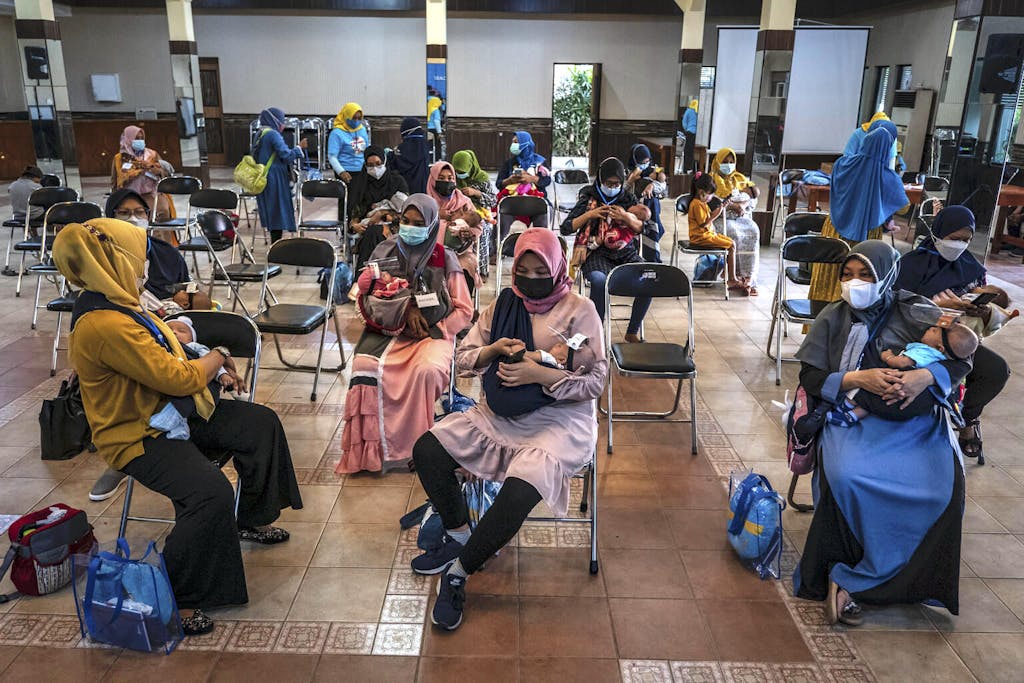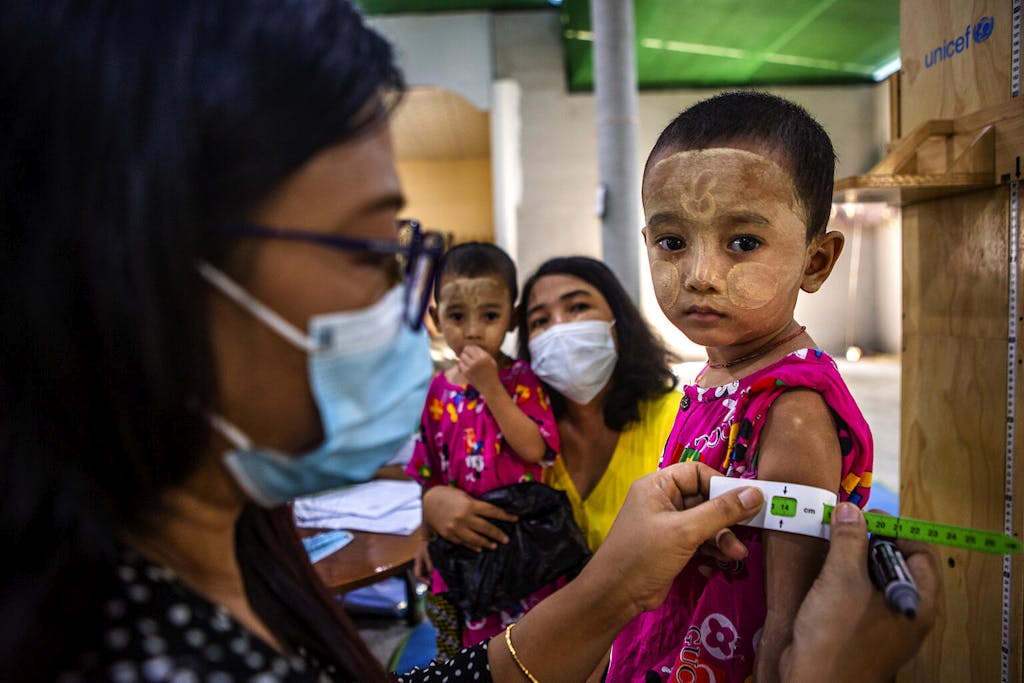To ensure that no one is left behind, primary health care must be equitable, resilient, and capable of meeting everyone’s needs. Universal Health Coverage Day is recognized to inspire action toward this ambitious yet attainable goal. It is also an opportunity to celebrate and reflect on the progress that has been made globally to expand access to UHC. Not only is UHC the moral and equitable path forward in strengthening global health, but it’s also the smartest investment we can make to prepare for the next pandemic.
Universal Health Coverage is a Prerequisite for Pandemic Preparedness
Imagine a world where all people, whether they live in bustling cities, remote villages, or anywhere in between, have access to high-quality, affordable health care services. In this reality, primary health care is localized, sustainably financed, gender-responsive, and resilient in preventing and responding to emerging health threats. Universal Health Care (UHC) Day 2021, which will be observed Dec. 12, is an opportunity to rally around the goal of attaining health care for all by 2030. The day will also mark the two-year anniversary of the start of the COVID-19 pandemic. Over that time, the world has mobilized in unprecedented ways. However, as reported deaths due to COVID-19 climb to 5.3 million and cases continue to rise exponentially amid the spread of highly transmissible new variants such as Omicron, it’s become increasingly evident that to stop the spread anywhere, we must stop the spread everywhere. This starts with ensuring that universal health care is prioritized by political leaders in primary health care systems.

Mothers wait for their children to be immunized with the pneumococcal vaccine at an event in Gresik, Indonesia. Photo: Ulet Ifansasti / UNICEF
The COVID-19 pandemic and responses to the pandemic have placed an enormous burden on, and highlighted, the critical role of primary health care systems. Primary health care providers have been at the forefront of reducing COVID-19 transmission, administering vaccines, and fostering community engagement on mask wearing and other public health measures. At the same time, primary health systems have been responsible for mitigating the severe disruptions to essential services, such as routine immunizations for polio, measles, and other deadly communicable diseases. Unfortunately, the success of these systems is highly uneven and their resilience is shown to heavily correlate with levels of investment, political commitment, and country income level. Data from the World Health Organization (WHO) shows the pandemic especially affected health services in low-income countries, with 45% of countries reporting disruptions in at least 75% of essential services in May and June 2020. In addition to ensuring equitable access to vaccines, strengthening primary care systems across the world will help end the current pandemic and prevent the next one.
The Road to UHC
In the past two decades, many countries have expanded access to and coverage of health services, with notable improvements in financial protection. In 2019, at the 74th UN General Assembly, world leaders unanimously committed to achieving UHC by 2030. This declaration reaffirmed the importance of political leadership in stewarding whole-of-government and whole-of-society approaches and outlined key targets necessary to realize UHC by 2030.
Today, as the world grapples to control the COVID-19 pandemic, the case for UHC has become more urgent. During the Special Session of the World Health Assembly from Nov. 29 to Dec. 1, several Member States reiterated the importance of whole-of-society and One Health approaches in preparing and preventing future pandemics. In particular, a coalition of pandemic treaty proponents, named the Group of Friends of the Treaty, called for the inclusion of UHC elements in the treaty negotiations. Additionally, interventions from nonstate actors including Gavi, The Vaccine Alliance, the Joint United Nations Programme on HIV/AIDS (UNAIDS), the International Federation of Red Cross and Red Crescent Societies (IFRC), and the World Bank emphasized the need for a new instrument that addresses strengthening long-term commitments for primary health care. These nonstate actors, as well as Civil Society Organizations (CSOs) and private sector partners, will continue to be integral in helping Member States push the UHC 2030 agenda forward. While the form and content of a treaty or accord for pandemic preparedness and response are unknown, the potential of enshrining UHC principles in such an instrument is a tremendous acknowledgment of the role of UHC in pandemic preparedness and response.

Mg Thu Wai Htut is measured with a MUAC tape to check for malnutrition at Dagon Seikkan ward community hall in Myanmar. Photo: Nyan Zay Htet / UNICEF
Actions speak much louder than words on UHC.
While there is global support for accelerating efforts to achieve universal health care by 2030, national actions for achieving it are still fragmented. Many countries have set national targets, yet significant gaps remain between implementation and results. To track global progress on UHC, UHC2030, a global partnership of governments, international organizations, global health initiatives, philanthropic foundations, civil society organizations, and private sector partners, released its State of UHC Commitment 2021 Review. The review highlights that although many countries have made key commitments to meet the targets for UHC, only 36% of participating countries have operationalized these commitments into on-the-ground action. In response to the pandemic, many countries inflated their health budgets, however, maintaining essential health services have been deprioritized. As the pandemic continues to push millions of people into poverty, affordable access to primary health services must be maintained to avoid further backsliding on health inequities and prevent further financial hardship. The report notes that only six of the 45 participating countries have made commitments to address gender equity in health and political leadership, even though women comprise 70% of the global health care workforce. Overall progress on UHC must be accelerated to confront the health crisis that we face right now and those in the not-too-distant future.
The case for UHC is undeniable, not only in upholding the right of every person to have affordable treatments and services for noncommunicable diseases, sexual and reproductive health, and mental health, but also in preventing future and ongoing health threats. As a precondition for the social, economic, and environmental dimensions of the Sustainable Development Goals, health is everyone’s business and the consequences of business as usual are too great to not act. We must hold leaders accountable to their political commitments if we are to achieve UHC by 2030.







